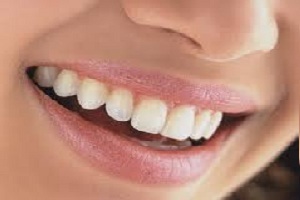5 Things I've learned From Dementia #3
- Written by J.J.

This month: Lesson #3 Let go, let go, let go
Artwork above from: Art of Alzheimer's
My interaction with dementia is a study in letting go. In mid to later stages, dementia is variable day to day so expected outcomes may not occur and important things like: getting to appointments, taking a walk, going on an outing, or, perhaps, even attending to hygiene or eating may not happen when I, or others, think they need to happen. Caregivers need to let it go and try again later. People experiencing the condition have already let it go and are in a protracted state of loss. They are letting go of everything they built throughout their lives: their finances, their accomplishments, their material assets and perhaps their awareness of having family. Finally they will let go of life entirely prompting their loved ones to begin their journey of letting go.
5 Things I've learned from Dementia--#2
- Written by J.J.

"Orange Lily" by Jane Kippenhan from The Art of Alzheimer's exhibit
#2 Examine your need to be "right"
Living in our polarized scientific society where it's common to hear arguments about who is right this lesson was hard to learn. Yet in dementia care one not only finds out immediately that it's counterproductive to be right but it's also not a winning strategy for establishing a therapeutic bond. The object of dementia caregiving is to become an ally and the highest priority is to establish trust because as dementia erodes judgement it is critical to know someone trustworthy to provide guidance. The reflex to be right is insidious and it pops up in language subconsciously. For example it's reflexive to say: "you're going the wrong way" which implies that you know the "right" way or "No, you didn't x" which means you hold the factual truth regarding x. Effectively supporting dementia requires a paradigm shift in communication and adopting that shift enriches my daily life and social contacts.
Your Oral Health and Major Illness---the Connection
- Written by J.J.
 Good oral health is about more than preventing dentures or cavities and flashing a winning smile. Did you know that regular dental visits can help protect you from some major illnesses? Six major health issues are connected to poor oral care yet a large percentage of older Americans are not getting the dental visits they need. Cleaning our teeth regularly at home and in dental appointments is especially important as we age and become more vulnerable to disease. If you don't have a dentist, only see your dentist when your tooth hurts, are afraid of the dentist, worry about the cost of regular dental visits or think of the dentist only as a place to repair teeth please read on.
Good oral health is about more than preventing dentures or cavities and flashing a winning smile. Did you know that regular dental visits can help protect you from some major illnesses? Six major health issues are connected to poor oral care yet a large percentage of older Americans are not getting the dental visits they need. Cleaning our teeth regularly at home and in dental appointments is especially important as we age and become more vulnerable to disease. If you don't have a dentist, only see your dentist when your tooth hurts, are afraid of the dentist, worry about the cost of regular dental visits or think of the dentist only as a place to repair teeth please read on.
Read more: Your Oral Health and Major Illness---the Connection
Sweeten your day with health benefits from honey
- Written by J.J.
 Mary Poppins sings, "Just a spoonful of sugar helps the medicine go down" yet a spoonful of honey can be as powerful as medicine and it goes down so much easier. That's why it's been taken as a health supplement and cure since the Stone Age. For over 2000 years cultures have documented it's uses and now western science is adding to that medical literature. Its sweet taste beats most medicines and its power to heal a broad range of conditions is impressive. Is it time to bring more honey into your life?
Mary Poppins sings, "Just a spoonful of sugar helps the medicine go down" yet a spoonful of honey can be as powerful as medicine and it goes down so much easier. That's why it's been taken as a health supplement and cure since the Stone Age. For over 2000 years cultures have documented it's uses and now western science is adding to that medical literature. Its sweet taste beats most medicines and its power to heal a broad range of conditions is impressive. Is it time to bring more honey into your life?
